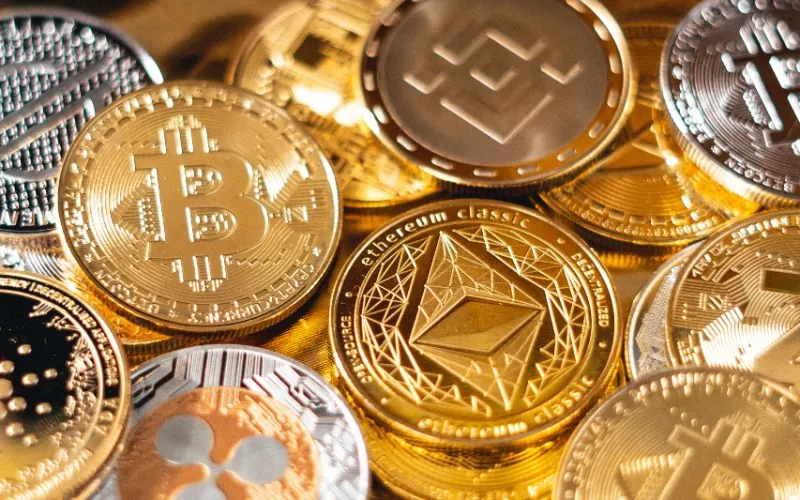It hardly seems possible that the concept of the cryptocurrencies was only first mooted back in 2008, or that it’s been just over a decade since they have been in circulation.
Even more remarkable is the fact that, in this relatively short period of time, almost 15,000 have been created with many others falling by the wayside in the process.
As historians of the subject will tell you, it all started with a paper published by the mysterious figure called Satoshi Nakamoto proposing a new peer-to-peer electronic cash system. The identity of Nakamoto, if indeed it was a single person, has never been discovered.
But the concept of the proposed electronic cash system is now firmly embedded in the public consciousness. Equally important is the concept of the blockchain that underpins all cryptocurrencies, and which is already being deployed in many other ways.
These range from logistics companies being able to organise more effectively to the safe transfer of legal and other documents.
A currency whose time has come
There’s a very good case to support the assertion that cryptocurrencies are perfect for the age that we are living in. The digitisation of so many aspects of the world which were previously analogue means we expect speed and efficiency.
The globe is also getting ever smaller with international barriers starting to mean less and less. So, a common currency that is able to be used everywhere from Australia to Zambia without the need for conversion has to be a good idea.
Then there’s the more political aspect to cryptocurrencies. At a time when faith in established political movements and large institutions is waning, the idea of a payment method beyond their control is appealing to very many people.
The investor’s choice?
While the initial idea of cryptocurrencies was to create actual currencies like the pound, dollar, and euro, this hasn’t been exactly how things have worked out.
This is because early on their history, many people saw the investment opportunities these currencies presented. For the lucky ones, it has meant fortunes have been made. But it’s also saddled Bitcoin and its rivals with the reputation of being potentially very volatile on exchanges like Bitiq.
With many peaks and troughs in value over the years, this has made many businesses wary of accepting cryptocurrency as payment. One only has to look at how Bitcoin’s value dropped almost instantly back when Elon Musk announced that he would not support it or accepts as payment for Tesla cars.
From online casinos to tech giants – sectors that have decided to take a chance
That said, there are a number of businesses of every size and across a wide range of sectors that have decided that they will start accepting cryptocurrency payments, predominantly in the main ones like Bitcoin, Ethereum and Litecoin.
This has included an ever-growing number of online casinos. After all, there’s a very logical link why this should be the case. Online casinos are totally digital businesses that are also driven by the desire to innovate. They also involve multiple transactions with players that need to be made quickly and securely. The players themselves also greatly value privacy and discretion.
It all adds to the fact that there is a growing trend in these businesses to actively seek out players who will be keen to transact in this way. To find out more about online casino crypto payments, this guide contains a great deal of very useful information and tips.
As you might also expect, there are several big tech companies that have also decided to embrace the crypto world for payments. Undoubtedly, the biggest of these has been Microsoft who came aboard back in 2014. The software giant first started to accept Bitcoin as payment for games, apps, and general content. Since then, it has expanded this to include payment for services like Xbox Live and Microsoft 365.
In the retail sector, there are also a number of big high street names that now welcome Bitcoin. These include the cosmetics and beauty products retailer Lush as well as Wholefoods who first started taking payments back in 2019.
Why not Amazon?
Turning to e-commerce, one might expect that the giant Amazon would be accepting Bitcoin by now. After all, more than almost any other retailer it has made efforts to meet all possible customer requirements. But, to date, Bitcoin has never been accepted.
It is possible to get vouchers from a third party using Bitcoin that you can then use to buy products on the site, but that is as near as you’ll get for the moment.
One of the reasons for this reticence may lie in the rumours that Amazon may be following in the footsteps of Facebook and be planning to launch its own cryptocurrency.
One factor that may well have a major effect on the take-up of Bitcoin payments is that PayPal will now accept it as a currency. When such a large operator as this, which processed $936 billion in 2020, starts to play it means others should follow.
So we can probably predict that the shaky start for cryptocurrencies as a means of purchase is gradually becoming more stable. It also means that we can see an ever-increasing number of organisations starting to recognise and accept it as a currency in the next few years.

